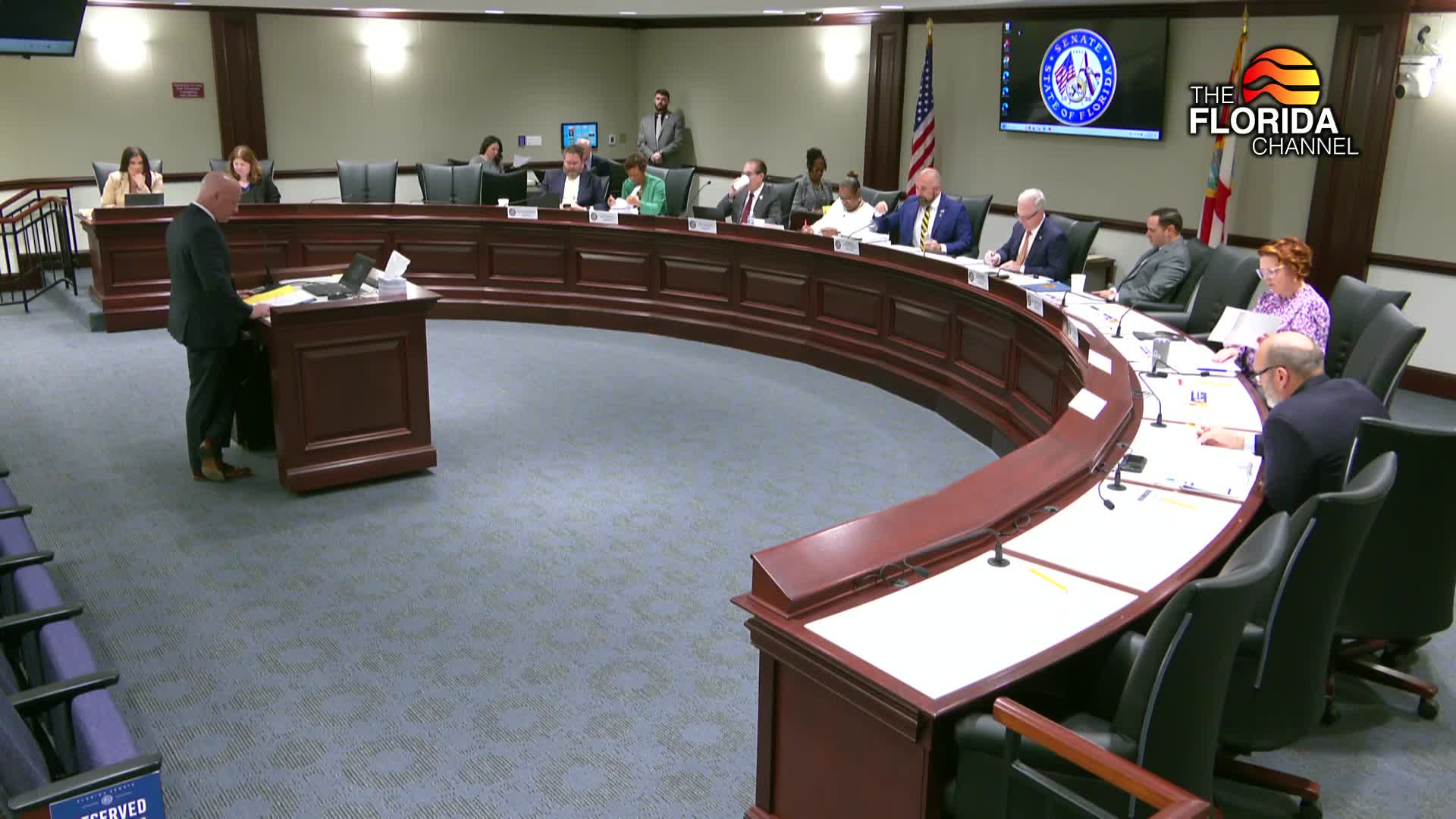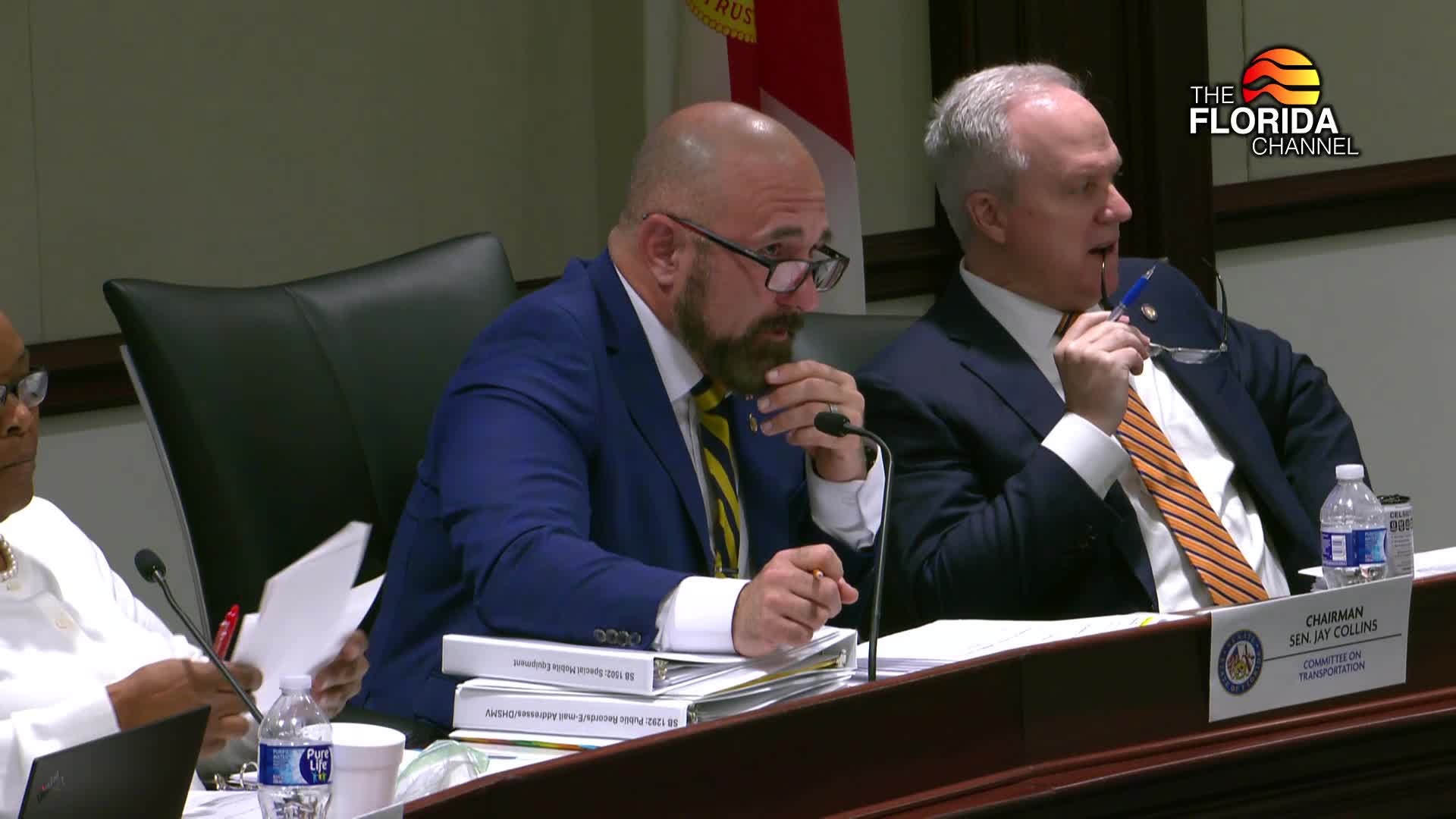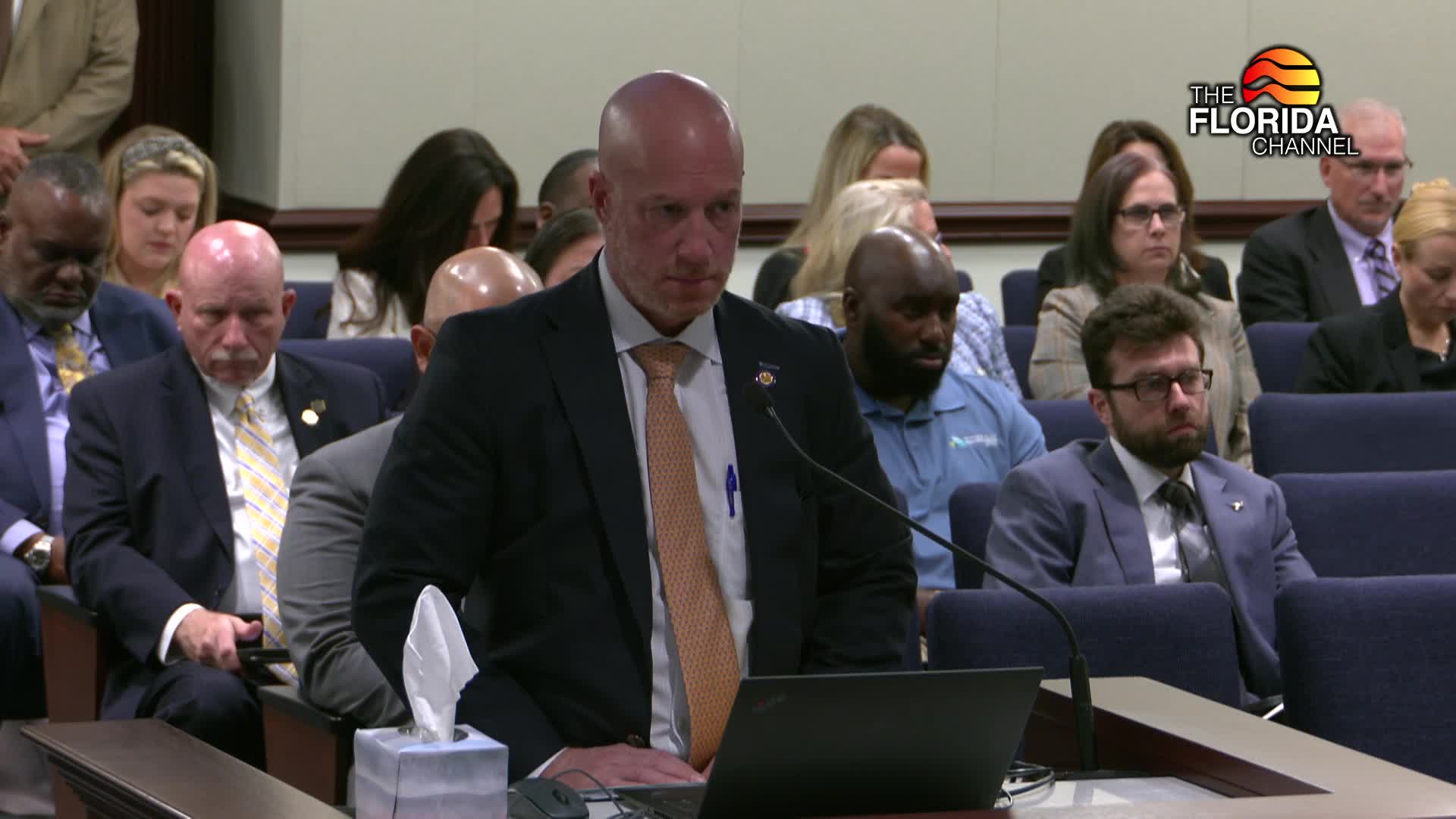Article not found
This article is no longer available. But don't worry—we've gathered other articles that discuss the same topic.

Senate committee adopts transportation bill amendment after debate over utility relocation and reimbursements

FDOT materials office outlines aggregate supply, imports and a $100 million grant program to shore up materials

